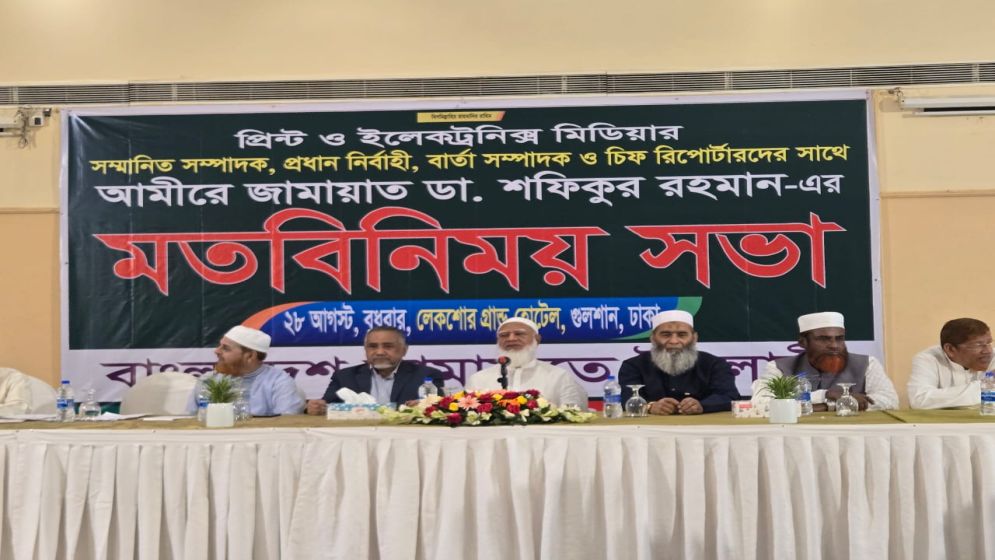Jamaat-e-Islami leader calls for end to politics of vengeance and division

Shafiqur Rahman, Ameer of Bangladesh Jamaat-e-Islami, has called for an end to the politics of vengeance and division in Bangladesh, advocating for national unity and peace. Speaking to media editors and senior journalists at a recent event, Rahman emphasized the need to move beyond divisive politics.
“We want to bury the politics of vengeance... let it not rise again. We want to bury the politics of division... let it not rise again either,” Rahman declared, underscoring his party’s commitment to fostering unity and avoiding issues that could split the nation. He stressed, “In every matter, we want the nation to remain united.”
Rahman also addressed the party’s stance on justice, stating that Jamaat-e-Islami holds no personal grievances but insists on accountability for specific crimes. “We have forgiven everyone.
However, if someone has committed a specific crime, justice must be ensured. Without addressing such crimes, society cannot be reformed. This is a demand for justice, for fairness, for peace,” he said.
On religious harmony, Rahman affirmed that no one should act out of religious discrimination. “If I have the right to live peacefully in this country, then people of all other religions have the same right. The term ‘minority community’ has been used to divide society,” he remarked.
Extending a message of friendship to India, Rahman called for peaceful coexistence among neighboring countries.
“We all want friendship and cooperation,” he said. Referring to India, he added, “We don’t want anyone to be in danger. We want everyone to live as honorable neighbors. This isn’t just about India… this is our stance with everyone.”
He urged neighboring countries to respect Bangladesh's sovereignty and allow its people to determine their own future.
“Help us as friends, but please do not try to compel us. Let the decision be made by our people. When the people make a decision, it will be for the welfare of the nation. This is what democracy and people’s rights are about. But if someone tries to force us from outside, we will be harmed,” Rahman stated.
The meeting, held at Hotel Lakeshore in Gulshan on Wednesday, included prominent media professionals such as Alamgir Mohiuddin, editor of Naya Diganta; Shamimul Haque, executive editor of Manab Zamin; and Hasan Ahmed Chowdhury Kiron, director of news at ATN Bangla. The discussion also touched on issues related to a free press.
Reflecting on the Liberation War, Rahman expressed sorrow over the historical divisions between those labeled as "Pakistani collaborators" and "Hindustani collaborators," describing it as a source of deep pain.
The meeting was attended by senior Jamaat-e-Islami leaders, including Nayeb-e-Ameer Mujibur Rahman, Syed Abdullah Mohammad Taher, Secretary-General Mia Golam Parwar, and other top party officials.
____

